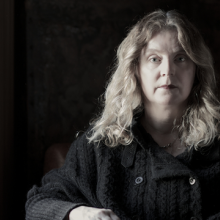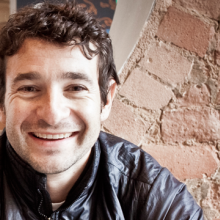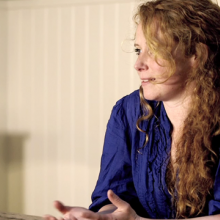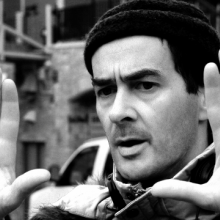Words by Matthew Bell
Bharat Nalluri has worked on many of the high-profile dramas that have come to define the nine o’clock slot on BBC1 over the past decade: Spooks, Hustle and Life On Mars. These shows won both critical acclaim and audiences, notching up numerous awards for the shows’ producer Kudos.
Spooks has bookended Nalluri’s TV career. He directed the very first programme in 2002 and now, ten series later, brings the BBC1 spy show to a close this month when he directs the final two episodes. With MI5 chief Harry (Peter Firth) and the long-suffering Ruth (Nicola Walker), Nalluri is one of the few to survive the decade – most of the show’s main characters have come to a grisly end along the way.
“When it first came out there wasn’t a show like it. Spooks doesn’t take any prisoners; you’ve got to come along for the ride. It moves at a pace and expects the audience to be intelligent,” says Nalluri. “It was ‘adrenalinised’, although it also works very well as a character piece. There’s a domestic quality to it, which has been there right from the beginning. It was a game-changing show for the BBC.”
“It’s important to have both the practice and the theory. Deconstructing movies with a professor of film, working out why a story works, is very useful for a director.”
Enthused by seeing Star Wars as a child in Newcastle, Nalluri requisitioned his dad’s super 8 camera and started shooting. “My first films were credit sequences of huge movies I never made on my Scrabble board. We used to do animated sequences using the letters to spell out our names,” he recalls.
Two major events shaped Nalluri’s career choice. In the late 1980s, he landed a job as a runner on Mike Figgis’s debut feature, Stormy Monday. “I was fired after three days – I got the photocopying stuck in the photocopier and ripped it in half. I wasn’t cut out to be a runner but for the first time I saw a film crew and I was really inspired by how they turned Newcastle into another world. Being on a film set changed everything for me,” he recalls. Secondly, his early short films attracted the interest of Tyne Tees Television, which gave Nalluri a half-hour comedy to direct in the mid-1990s, In Bed With Jimmy Monty.
Next, Nalluri – with Neil Marshall, who went on to direct the hit movies Dog Soldiers and Centurion, as one of his co-writers – penned a crime thriller, Killing Time, which he made on a budget of just £100,000. The film was picked by Columbia Tristar and his directing career was up and running.
“Sit in the edit suite to understand the back end of the process. In the edit you understand the strengths and weaknesses of every department. I don’t think it’s a surprise that Hitchcock, David Lean and John Ford all started in the edit suite.”
Since then, as well as directing the Kudos TV series and picking up a BAFTA nomination for Life On Mars, Nalluri was nominated for an Emmy for the HBO mini-series Tsunami: The Aftermath and helmed the well-received period comedy Miss Pettigrew Lives For A Day.
Making a TV programme can be a fraught affair. Dawn-to-dusk filming days and ever-decreasing budgets are just some of the irritations that directors face. But Nalluri is undaunted: “If you had millions of pounds to play with, you’d end up making mush. It’s because you’re defined by your boundaries and budgets that you start to think very carefully about how you can make something, concentrating on the story rather than just the scale.”
Nalluri went to the Northern Film School in Leeds, but only after he’d made a number of short films; many with school friend Paul Anderson, another mate who has found Hollywood fame with the Resident Evil series. “I did it backwards, but I think it’s important to have both the practice and the theory. You learn very quickly on the job, but from my formal training I got a lot of film theory into my head. Sitting in a room and deconstructing movies with a professor of film, working out why a story works, is very useful for a director,” he says.
“If you had millions of pounds to play with, you’d end up making mush. It’s because you’re defined by your boundaries and budgets that you start to think very carefully, concentrating on story rather than just scale.”
The director offers two further pieces of advice to would-be directors: “If I had my time again, I would have spent more time writing because writing is the quickest way to becoming a director. One of the hardest things when you start out is to find a project. If you’re writing your own product and people want to make it you can say, ‘I’m going to direct it.’
“The other thing I would have done is sit in the edit suite to understand the back end of the process. In the edit you understand the strengths and weaknesses of every department: what you need from actors, why the script’s not working, what’s wrong with the costumes – you see it all. I don’t think it’s a surprise that Hitchcock, David Lean and John Ford all started in the edit suite.”
Directing is a “great living,” Nalluri concludes, quoting Orson Welles who compared making movies to playing with “the biggest train set a boy ever had,” before adding: “You get to do make believe every day.”






